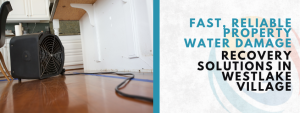
Have you ever opened the door to your garage and felt like the air was pressing in on you? Like walking into a space that’s warmer, heavier, or just harder to breathe in? If so, you’re not alone—and that sensation where the garage air feels thick might be telling you something very important about your indoor air quality.
Let’s take a closer look at what’s going on when your garage feels stuffy, sticky, or downright uncomfortable—and how it might affect not just your car or storage, but your home and health too.
The Day It Hit Me: Something Wasn’t Right in the Garage
One summer afternoon, I walked into my garage to grab a box of tools. The moment I stepped in, I felt it—like walking into a cloud. The garage air feels thick, humid, almost like I had entered a different climate. My first thought was, “It’s just hot.” But even when I turned on the fan and opened the door, the feeling didn’t go away.
Turns out, that thick feeling is more than discomfort—it’s a signal. It’s how your garage whispers that it’s holding moisture, pollutants, and possibly even mold. And if your garage is attached to your home, those issues don’t just stay in the garage. They can sneak right into your living space.
Why Does the Garage Air Feel So Thick?
Let’s start with the basics: garages weren’t made to be climate-controlled. They often don’t have insulation, proper ventilation, or even moisture control. When the garage air feels thick, it could be caused by several things:
- High humidity trapped inside
- Poor air circulation
- Leaking water from roofs, walls, or plumbing
- Stored chemicals or gas fumes
- Lack of insulation that causes temperature swings
Humidity is often the main culprit. When warm, damp air lingers in a garage without anywhere to go, it sits still. That stillness makes the air feel “thicker,” like walking through soup.
Real Consequences of That Sticky Garage Feeling
When the garage air feels thick, it’s not just about being a little sweaty. This sensation often points to deeper issues that can have real consequences for your home, your things, and your health.
Damage to belongings: High moisture in the air can warp wood, rust metal, and cause mold on cardboard boxes.
Mold growth: Mold loves dark, damp, stagnant places. A thick-air garage is like a vacation home for mold.
Poor indoor air quality: If your garage is attached to your house, the air (and its problems) can move inside through shared walls, vents, or even the doorframe.
Allergy and asthma flare-ups: Dust mites and mold spores thrive in humid conditions. If you or someone in your home has respiratory issues, thick garage air could make them worse.
Signs That the Garage Air Is Doing More Than Just Feeling Heavy
It’s not always easy to spot the problem right away. But your garage will usually give you some clues if something is off.
Look for these signs:
- Musty or moldy smells when you walk in.
- Condensation on windows or metal tools.
- Visible mold on wood or drywall.
- Warped cardboard boxes or soggy insulation.
- Rust forming on tools or bikes.
- A general feeling of “wetness” or stickiness in the air.
If you’re noticing more than one of these, and especially if the garage air feels thick every time you step in, your garage may need attention soon.
What Can You Do When Garage Air Feels Thick?
Good news—just because the garage air feels thick doesn’t mean you’re stuck with it forever. There are ways to take control of the situation, from simple fixes to long-term improvements.
Try These Simple Fixes First
- Open the door and let fresh air in: A quick and easy way to flush out stale air.
- Use a portable fan or box fan: Help keep air moving, especially during summer.
- Remove unnecessary clutter: More items mean less airflow.
- Keep containers sealed: Paint, gasoline, and cleaners can release fumes that make the air feel heavier.
Step It Up With Smart Additions
Want to make a bigger impact? These upgrades can do wonders.
Install a dehumidifier: This machine pulls moisture out of the air and works well in basements and garages.
Add vents or an exhaust fan: These help remove stale, damp air and bring in fresh air.
Use moisture-absorbing products: Silica gel packs or charcoal bags work well in small areas.
Seal cracks and gaps: Keeps outside moisture from creeping in during rainy weather.
Consider These Long-Term Solutions
If you want to avoid repeating the same problem every year, look at permanent changes.
| Upgrade | Benefit |
| Garage insulation | Stabilizes temperature and blocks outside humidity |
| Vapor barriers | Prevents moisture from the ground from rising up |
| Roof/gutter repairs | Stops leaks from above that add to the problem |
| Waterproof paint | Seals concrete walls and floors from absorbing water |
These fixes not only help when garage air feels thick, but also improve your garage’s overall lifespan and usefulness.
How Thick Garage Air Connects to Bigger Indoor Problems
Remember, your garage isn’t just a parking spot or tool shed—it’s often connected directly to your home. That makes it a gateway for air movement, pests, and moisture.
If mold or moisture from your garage creeps inside, it can lead to much bigger issues in your walls, attic, or crawl spaces. You might even start to notice moldy smells indoors, or find it harder to cool your home in the summer. When that happens, you’re not just dealing with an annoying garage anymore—you may need expert help to fix the damage.
That’s where you might want to check out these expert restoration solutions that specialize in handling moisture and air quality problems before they get worse.
Humidity by the Numbers: What’s Considered Too Much?
The right amount of humidity in any indoor space is between 30% and 50%. Once it gets above 60%, you start to feel the air getting heavier and more uncomfortable.
Here’s a quick humidity reference:
| Humidity Level | Impact |
| Below 30% | Dry air, cracking wood |
| 30–50% | Ideal range |
| 51–60% | Slight discomfort begins |
| Above 60% | Risk of mold, thick/sticky air starts |
| Above 70% | Mold and mildew are almost guaranteed |
A simple humidity monitor can tell you where your garage stands—and whether your feeling that garage air feels thick is backed by real numbers.
Why Some Garages Are Worse Than Others
Not all garages are created equal. The way your garage was built, where your home is located, and even how often you use it can all affect the air inside.
Here are a few common reasons:
- Attached garages share walls with the home, making air movement easier between spaces.
- No windows or vents means stale air gets trapped.
- North-facing garages get less sunlight, making them damper.
- Storing water-based items like plant soil or pool supplies can raise moisture levels.
- Old or cracked concrete floors allow ground moisture to rise.
All of this adds up to one truth: if your garage air feels thick, it’s often a sign of larger building issues.
Comparing Air Quality: Garage vs. Living Room
You might be surprised to know how different the air in your garage is from the rest of your home.
| Feature | Garage | Living Room |
| Air circulation | Low | Moderate to high |
| Humidity control | Rare | Usually present |
| Ventilation | Poor | Connected to HVAC |
| Exposure to chemicals | High (paints, gas, cleaners) | Low |
| Temperature changes | Extreme | Regulated |
It’s no wonder the garage air feels thick when you consider how little help it gets compared to the rest of your house.
Easy Daily Habits to Keep Garage Air Light and Clean
You don’t need to invest thousands to make your garage better. Daily habits go a long way in keeping the space breathable.
Here’s a quick list to get started:
- Keep the garage door open for 10–15 minutes daily.
- Run a fan or dehumidifier, especially after rain.
- Sweep the floor weekly to remove dust and mold spores.
- Check for leaks monthly—look up at the ceiling and down at the floor.
- Don’t store wet items—like wet rags, towels, or pool gear.
- Label and seal chemical containers tightly.
Over time, these simple actions help prevent the feeling that garage air feels thick from creeping in again.
When It’s Time to Call for Backup
If you’ve tried cleaning, venting, and sealing—and the garage air feels thick no matter what—you may be dealing with water damage or deeper issues that can’t be fixed with a fan. That’s when calling for help is not just smart, but necessary.
Hidden leaks, mold, or damaged insulation can’t always be seen with the naked eye. Professionals use moisture meters, thermal cameras, and airflow tools to find the root of the issue. If you feel like you’re just covering up symptoms, don’t wait too long. The longer you wait, the worse the damage (and the cost) can get.
For those ready to get ahead of the problem, here’s a helpful guide on dealing with home restoration the right way.
Real Story: Mike’s Garage Makeover
Mike, a homeowner in Tarzana, faced the exact problem. He told us, “Every time I went in, the garage air feels thick and smelled like wet socks. I thought it was just the weather.”
Turns out, his water heater had a slow leak that went unnoticed for weeks. Mold had formed behind the wall, and the insulation was soaked through. He had to get professional help to remove mold, replace drywall, and restore airflow.
Now? “It feels like a new room,” Mike says. “I wish I hadn’t waited so long.”
Want to learn more about handling situations like Mike’s? You can find more restoration solutions that work for Tarzana homeowners.
Final Thoughts: Don’t Ignore What Thick Air Is Telling You
When your garage air feels thick, that feeling is more than just a hot day. It’s a sign—a message from your home that something needs your attention.
Whether it’s a fan, a dehumidifier, or full-scale repairs, taking steps today can save you from headaches tomorrow. Keep an eye (and nose) out for changes, track your garage’s humidity, and don’t be afraid to reach out for expert help when it’s needed.
The air in your garage shouldn’t feel like a fog you have to push through. With a little effort, it can feel just as fresh and clean as the rest of your home.
Frequently Asked Questions: Understanding Why Your Garage Air Feels Thick
Why does my garage air feel thick and hard to breathe?
When your garage air feels thick, it usually means there’s trapped humidity, poor airflow, or even hidden moisture. These conditions create a heavy, stale environment that feels uncomfortable and may point to underlying issues.
Can thick air in my garage affect my home’s indoor air quality?
Yes, especially if your garage is attached to your home. Moisture and pollutants can travel through shared walls or vents, impacting the air you breathe indoors.
What can I do right now to fix thick air in my garage?
Open the garage door daily, use a fan or dehumidifier, and remove any clutter or wet items. These simple steps improve circulation and lower humidity fast.
Is it normal for my garage to feel stuffier in the summer?
Yes, warmer months increase humidity, and without ventilation, the garage air feels thick more often. However, persistent stuffiness may still require inspection for leaks or mold.
When should I call a professional for my garage air issues?
If the thick air doesn’t improve after basic fixes or you notice mold, water stains, or musty odors, it’s time to get expert help. Professionals can diagnose hidden water damage or air quality problems.





